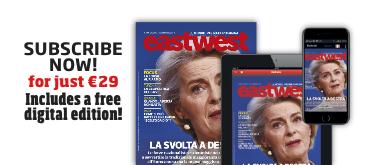Who’s afraid of democracy?
In a smart district of Cairo they've now opened the first café for traditional Muslims. Elegant tan armchairs welcome veiled women and their creamy cappuccinos (now the rage among upper middle class
Egyptians) while men can chat among themselves in an adjacent room. Families and children have yet another area all to themselves. Unmarried couples are not allowed. Such a place would have been unthinkable a year ago.
In a smart district of Cairo they’ve now opened the first café for traditional Muslims. Elegant tan armchairs welcome veiled women and their creamy cappuccinos (now the rage among upper middle class
Egyptians) while men can chat among themselves in an adjacent room. Families and children have yet another area all to themselves. Unmarried couples are not allowed. Such a place would have been unthinkable a year ago.
“It’s a conquest of the revolution”, claims an assertive woman shrouded in an elegant, dove-grey niqab. “It’s the Middle Ages”, replies Susan, an Anglo-Egyptian student. Switching focus, military special forces raided Ain Amenas, Algeria, 24 hours after Jihad militants from the desert overran a gas plant near the town. The first attack saw 23 Western hostages killed, with dozens of victims among the Algerian plant workers. British Prime Minister David Cameron expressed his disappointment that Western governments were only told of the raid after the fact. From a European and American point of view, this showed a serious lack of respect, from the Algerian point of view, they were well within their rights. The Arab world is used to tolerating conflict victims, the West is not.
This content if for our subscribers
Subscribe for 1 year and gain unlimited access to all content on eastwest.eu plus both the digital and the hard copy of the geopolitical magazine
Gain 1 year of unlimited access to only the website and digital magazine




